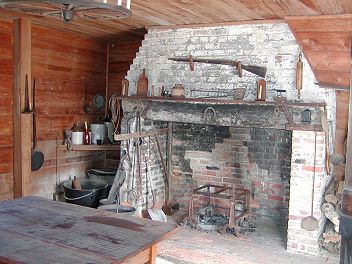 I'm looking for a new house in southern California where wood-burning fireplaces are outlawed because of air quality concerns. Yet most houses boast at least one fireplace. What ancient instinct requires an open flame in the great room, formerly called living room or family room or den? The answer can be found in History of Private Life, Volume II: Revelations of the Medieval World
I'm looking for a new house in southern California where wood-burning fireplaces are outlawed because of air quality concerns. Yet most houses boast at least one fireplace. What ancient instinct requires an open flame in the great room, formerly called living room or family room or den? The answer can be found in History of Private Life, Volume II: Revelations of the Medieval WorldI personally find the history of private life fascinating. These chronicles ignore the kings and tyrants, politicians and generals, scientists and explorers. The private life historians research the day-to-day life. A couple of good examples are: A Book for Today: Ho for California edited by Sandra L Myers and the excellent Women's Work: The First 20,000 Years Women, Cloth, and Society in Early Times
The current volume (spanning 1100-1500) explores the changing balance between private and public power, the emergence of the individual, and the use of private space. The final topic sheds light on the archaic fireplace in my new house.
We don't have to go back to the cave and the fire to ward of beast to understand this anomaly. Back in the middle ages, taxes were based on hearths; that is how important the fireplace was. The hearths were the very definition of a home. Even the poorest peasant hovel had a hearth, but the noble homes had several. When one moved up the economic and status ladder more rooms were heated as fireplaces moved beyond the kitchen to halls (living/dining rooms) and chambers (bedrooms). Thus, to show your success in the world your house needed more fireplaces on the inside and more chimneys on the outside.
As we all aspire to be lords of manors, we want that fireplace to differentiate our hearth from the lesser folk who can not afford one. Thus, the fireplace is a status symbol from 500 years ago.
This fascinating book is full of many other details from medieval life. Any excellent source for fantasy writers and anyone else interested in what life was really like long ago.


No comments:
Post a Comment